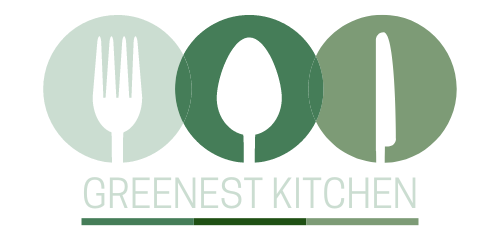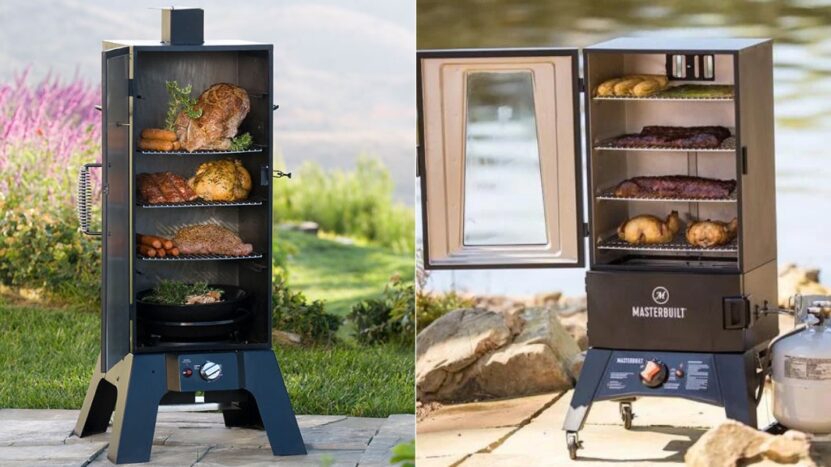Cooking outside has been a big deal in my family forever. And it’s not just about the grub – it’s about having fun, breathing fresh air, and getting that awesome smoked flavor you can’t beat. So listen up while I tell you about two popular grills: electric and gas.
They both work well, but how do you know which is right for you? That’s what I’m here for.
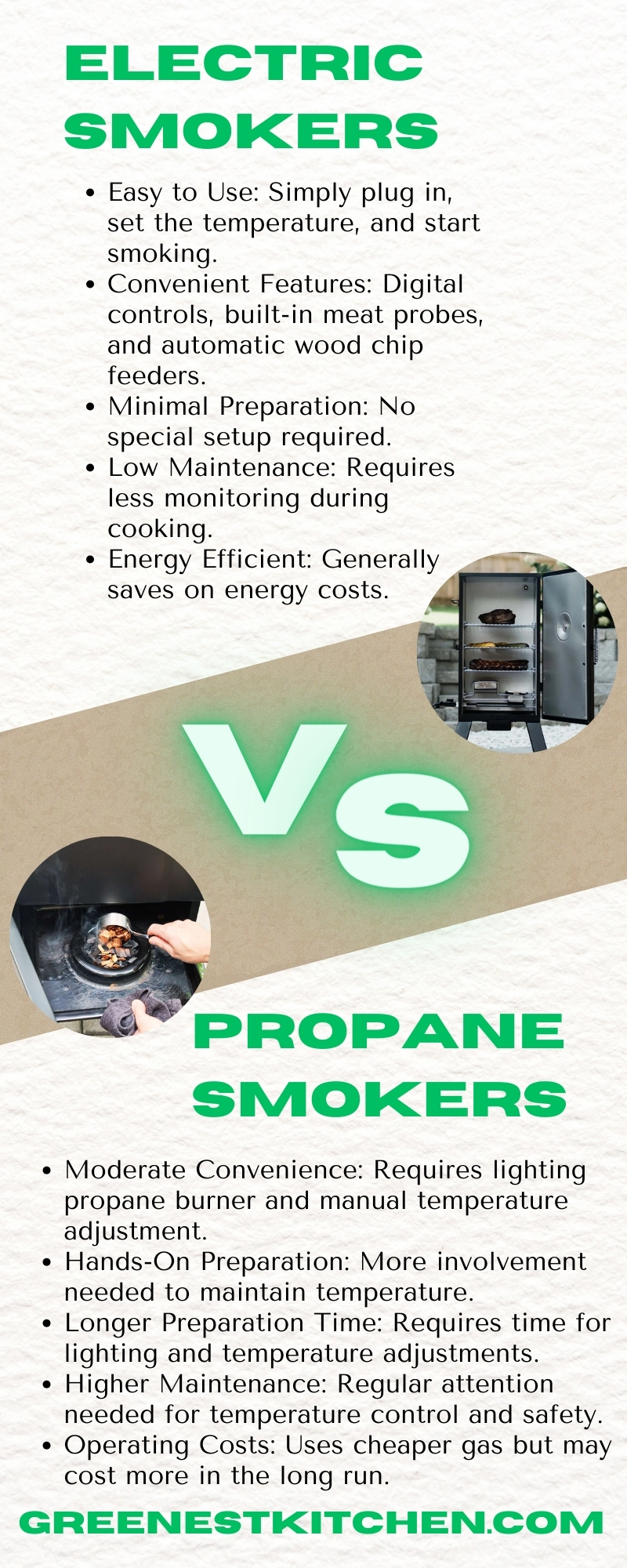
Which Model Is Better?
The choice between these two types depends largely on your specific needs, preferences, and circumstances, but let’s take a closer look.
What Should You Know About Electric Smokers?
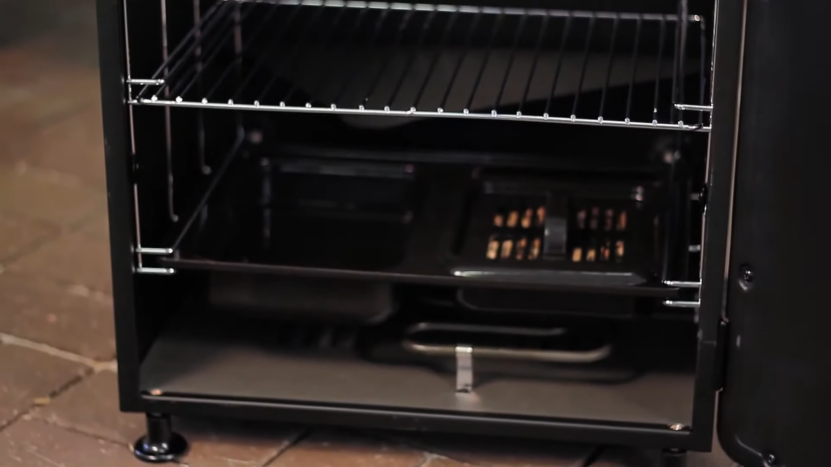
Electric smokers are really easy to use, so they’re a good choice for beginners just starting out with smoking.
One big plus is temperature control. Most electric smokers come with digital buttons so you can set the exact temperature you want, and it will stay that way the whole time the food is cooking.
This takes the guessing out of smoking and means your results will be the same for every cook. Just think – you can get the smoker going in the morning before taking the kids to soccer, and come back to perfectly smoked ribs!
If you prefer a twist, consider experimenting with unique dry rubs or savory marinades instead of traditional BBQ sauce for your ribs. Electricity sure is handy.
But they do have some downsides. You need to plug them into an outlet, so you can’t take them anywhere too easily. And the flavor might not be as intense as other types.
Even with those little problems, electric smokers are awesome for people who want things easy and the same each time. They’re perfect for long, slow cooking at low temps. And because you just set it and forget it, they’re great for people who want smoked food without sticking by the smoker the whole cook.
What You Should Know About Propane Smokers?
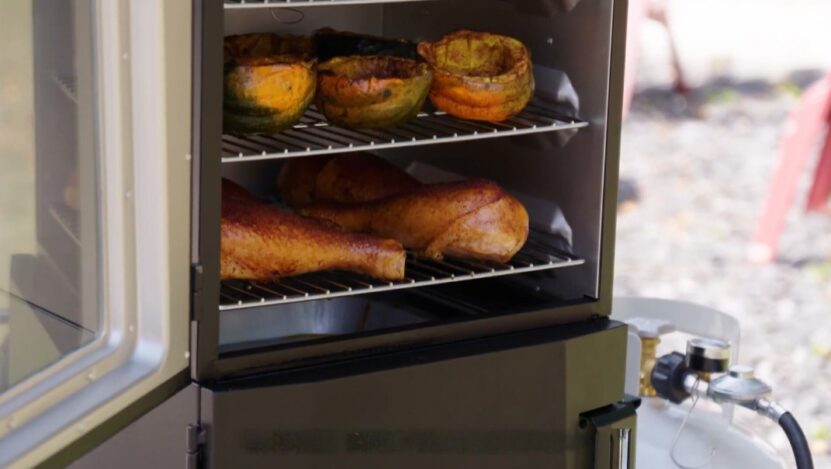
Experienced smokers seem to like them better because they make more heat and can give food a stronger smoky taste. Here’s how they work – the gas burns and heats up wood chips, which then make the smoke to cook and flavor the grub.
A big plus is you can take them wherever. Since they don’t need an outlet like electric smokers, you can use them in different outdoor places. They also heat up faster than electric and can get hotter, so they work well for smoking all kinds of food.
Now they do have some downsides too. You have to watch them more closely to keep the temp where you want it. And propane isn’t cheap over time like electricity.
Even so, gas smokers are awesome if you want the real traditional smoking experience. You have more control over the process. And nobody can deny that intense smoky flavor is just delicious.
Heat Control and Temperature Range Comparison
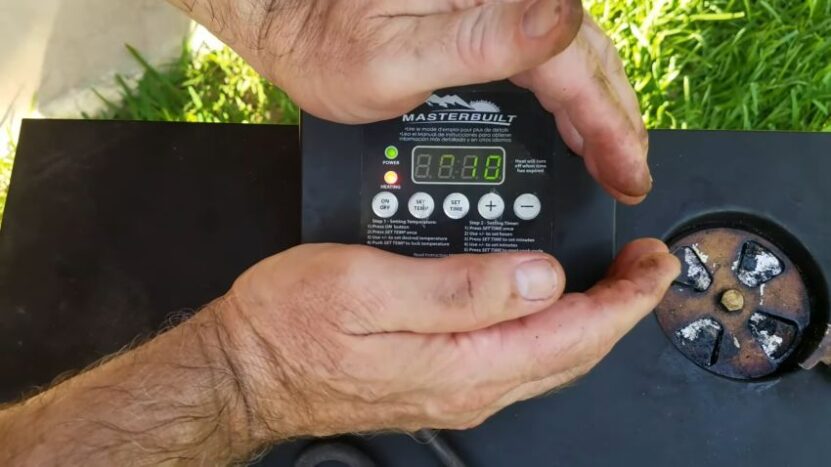
| Feature | Electric Smokers | Propane Smokers |
|---|---|---|
| Heat Control | Excellent – comes with digital controls for precise temperature setting. | Good – offers a wider temperature range but requires manual adjustment for control. |
| Consistency | High – maintain a set temperature throughout the cooking process. | Moderate – maintaining the desired temperature can be more challenging. |
| Temperature Range | Limited – up to 275°F (135°C), suitable for most smoking methods. | Wide – can reach higher temperatures quickly, accommodating a broader range of smoking methods. |
Convenience and ease of use comparison
| Feature | Electric Smokers | Propane Smokers |
|---|---|---|
| Convenience | High – Features like digital controls, built-in meat probes, and automatic wood chip feeders simplify the smoking process. | Moderate – Requires lighting a propane burner and adjusting gas flow, adding steps to the preparation. |
| Ease of Use | Very User-Friendly – No special preparation needed. Just plug in, set the temperature, add wood chips, and start smoking. | Less User-Friendly – More hands-on preparation and monitoring are necessary to maintain temperature. |
| Preparation Time | Minimal – Ready to use with a simple setup process. | Higher – Needs time for lighting and temperature adjustments. |
| Maintenance | Low – Simplified features reduce the need for constant monitoring. | Higher – Regular attention needed to control temperature and ensure safety. |
Smoking Capacity and Cooking Space
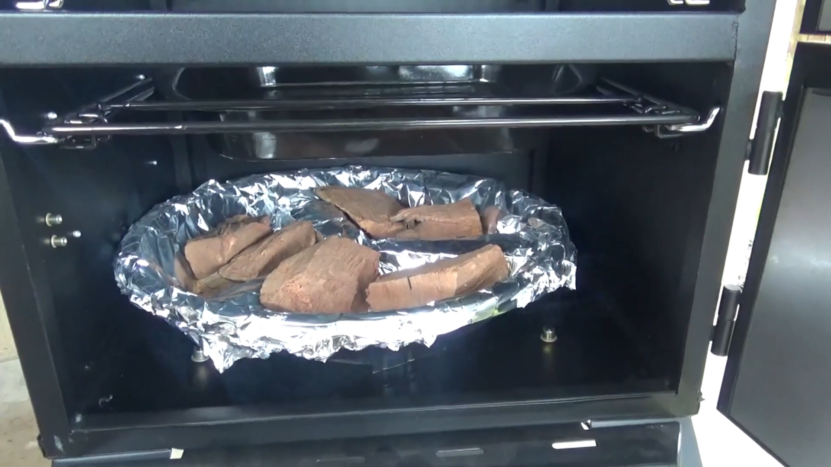
Electric smokers come in all different sizes. You can get small, portable ones or bigger ones like a cabinet. How much food it holds depends on its size – bigger electric smokers have more room. They usually have multiple racks too, so you can smoke different foods at once. Some have adjustable racks so you can fit bigger slabs of meat.
Propane smokers are known for holding a ton of grub. They’re usually bigger than electric smokers and can take more food. They also have multiple racks for cooking different things together. But the larger size means they aren’t as easy to carry around or store as the smaller electric smokers.
So electric smokers are more portable thanks to smaller sizes, but propane smokers will let you smoke a whole lot more food at once since they have mega capacity.
Energy Efficiency and Operating Costs
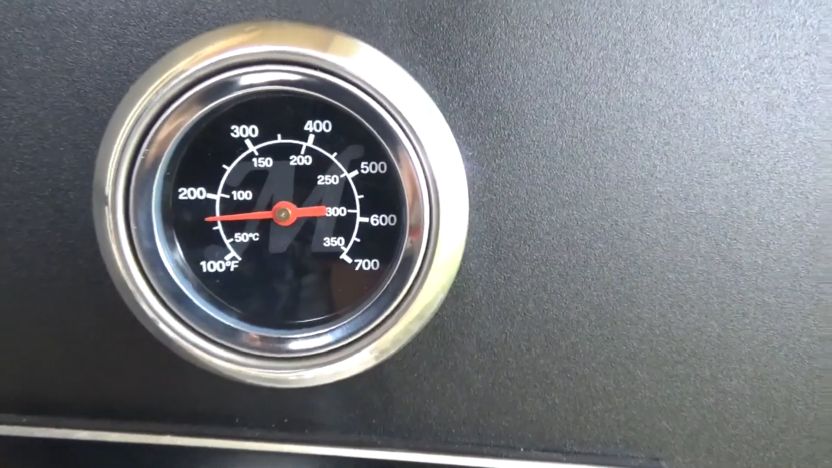
Electric smokers are usually better for saving energy compared to propane ones. But how much it costs to run an electric smoker depends on what your area charges for electricity.
Propane grills use gas which is pretty cheap to buy. But propane prices can change depending on where you live and the time of year. These smokers also burn through a lot of propane, especially when cooking hot or for a long cook. So propane grills might end up costing more to operate in the long run.
Durability and Longevity
Electric smokers are usually made with really good, tough materials meant for outdoor use. Things like insulated walls and tight-fitting doors keep the heat in and smoke from leaking out.
The downside is they can sometimes have electrical problems. Especially the heating element – it wears out after a while and might need replacing. But regular cleaning and maintenance will help an electric smoker last a long time.
Propane units are often built to last a really long time too. They usually use heavy-duty stuff like steel or cast iron that can handle super hot temps and rough outdoor weather. Their weakness is rust and corrosion if you don’t take good care of them. But if you do normal upkeep, a propane smoker should stand up to a lot of use with no problem.
Conclusion
Both electric and propane smokers have their unique strengths and weaknesses. Your choice comes down to what matters most to you: convenience, flavor, or the experience itself.
Besides outdoor cooking using electrical or propane smokers, there are different types of meat preparations such as grilling, which can be another way to expand your outdoor cooking options.

Hello guys, I’m a 36-year-old mother who runs a small business selling healthy snacks. I love to cook, and because I was a stay-at-home mom for a long time, I tried a lot of different things around the house. I’m glad that I can spend my free time writing on this blog with my two best friends.
